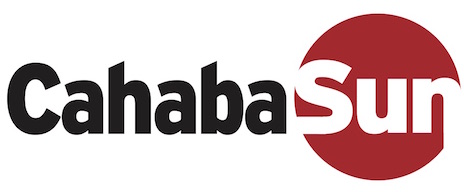The National Institutes of Health began enrolling participants in its groundbreaking new All of Us Research Program in 2018.
Working with researchers, health providers, community organizations and universities, including The University of Alabama at Birmingham — the NIH hopes to eventually have at least one million Americans volunteer to take part in All of Us, in which participants share their personal health information to help create one of the largest, most diverse health databases in history.
Scientists will use this data to learn how our biology, lifestyle and environment affect us and to find new and better ways to treat and prevent disease.
They also hope to find ways to better customize medical diagnosis and treatment for individual patients.
Researchers at The University of Alabama at Birmingham are playing a big role in All of Us. UAB leads the All of Us Southern Network, composed of more than 10 sites in Alabama, Mississippi and Louisiana.
Dr. Bruce Korf, chief genomics officer of UAB Medicine and the associate dean for Genomic Medicine, is the contact principal investigator for the Southern Network.
Dr. Korf calls All of Us “a unique opportunity to influence medicine for a long time into the future.”
The program is designed “to generate the data to understand risk factors for disease and outcomes for a diverse population over a period of time, and from that will come new insights for prevention, diagnosis and treatment,” he said.
A program like All of Us would not be nearly as effective without the tremendous advances in recent decades in the speed and capacity of genetic and genomic research. Genomics refers to the mapping of all the DNA in an organism.
The All of Us research program holds out the “possibility of customizing prevention, diagnosis and the treatment of disease to the individual — taking into account what they are specifically at risk for and how they will respond to treatment,” Dr. Korf said. “This will inform precision medicine for generations to come.”
Nearly 36,000 people have signed up for All of Us in the Southern Network so far, and more than 675,000 Americans have signed up nationwide.
And UAB is continuing to seek new participants in the program.
People who take part will answer surveys on different topics and be asked to share their electronic health record, give samples of blood and urine for lab and DNA tests. The health information that participants share with All of Us goes into a secure database.
By participating in All of Us, people receive numerous benefits. First of all, like the researchers themselves, the participants get the chance to be part of a historic research program.
Participants also receive “a rich return of value” because All of Us is using genomics, which includes genetic sequencing, Dr. Korf said.
They will have the chance to learn more about their ancestry and genetic traits, but researchers also look at “medically significant genes” in participants who opt into this analysis. These genes could point out risk for such conditions as cancer or heart disease.
“Most people are not going to have a variant in one of those genes that put them at risk for disease, but if they do, they can be provided genetic counseling,” he said. “For a small proportion of people — about 3% — this can be life-changing and even life-saving.”
The All of Us program reached a milestone in December when the NIH began returning personalized health-related DNA results to more than 155,000 participants, with reports detailing whether participants have an increased risk for specific health conditions and how their body might process certain medications.
The wide diversity of All of Us participants is also very important to the project, Dr. Korf said.
“Historically a lot of the research has been done on people of European ancestry, and we’ve learned a lot, but we’ve also learned that some of the things we found don't apply equally well to people of different ancestries,” he explained. “We want to provide medical care that is broadly applicable and available to people regardless of their background.”
More than 50% of people enrolled in All of Us are from racial and ethnic minorities.
“You’ve got to reach out to diverse communities if, in the long run, you want to serve diverse communities,” he said. The success of the All of Us research program also “requires building trust in communities that historically may have had good reason not to be trustful.”
According to Dr. Korf, community engagement has always been a “cornerstone” of All of Us.
However, community engagement “does not mean selling the community on the program,” he said. “It’s learning what’s important to the community and making sure that what you’re doing is sensitive to their needs.”
Community members have been part of All of Us from the beginning and people from diverse communities take part in the leadership groups.
As part of this effort to reach as many people as possible, the All of Us Southern Network has several enrollment sites in Alabama.
Last spring, All of Us opened a new site in Dothan, an area which was previously not well-served by the program, Dr. Korf said.
They also have a mobile unit that travels the state, including areas with poor internet access.
“It brings All of Us to people wherever they may be and offers us a chance to involve people who might not otherwise have the opportunity,” Dr. Korf said.
The lofty goal to enroll at least one million participants in All of Us nationwide is still in reach, despite delays caused by COVID-19, he said.
With the slowing of the pandemic, All of Us is back in “a rapid enrollment phase,” Dr. Korf affirmed. “It’s clear that the goal of at least 1 million participants will be reached.”
U.S. residents ages 18 and older can join the All of Us program.
For details, call 833-JOIN-UAB or go to allofus.uabmedicine.org or joinallofus.org.


